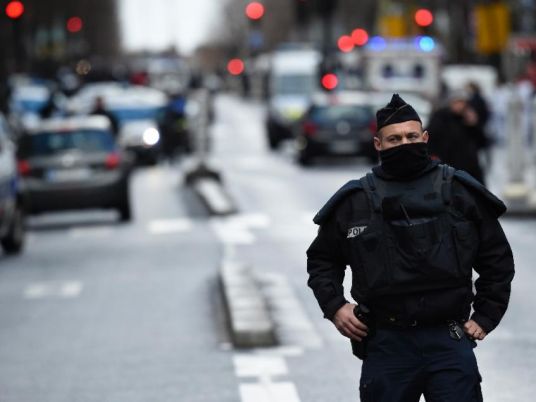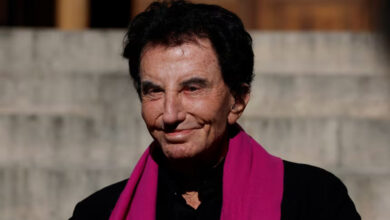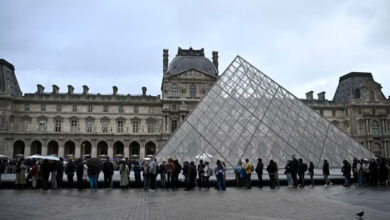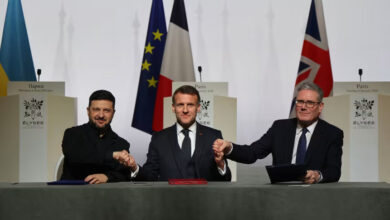
Defense chiefs from the United States, France, Britain and four other countries meet in Paris on Wednesday to examine ways to build on gains made against Islamic State, including increasing the number of police and army trainers.
Islamic State was ousted by government forces from the western Iraqi city of Ramadi last month and has been slowly pushed back in other areas.
"The object of today is to satisfy ourselves that the balance of the campaign is right…and that we can now capitalize on the setbacks Daesh has suffered in Iraq and move on to tighten the noose around the head of the snake in Syria in Raqqa," British Defense Secretary Michael Fallon told reporters before the meeting.
Daesh is the Arabic derogatory acronym to describe Islamic state.
Fallon said the group had lost 25 percent of the area it controlled in Iraq and 10 percent in Syria.
US Defense Secretary Ash Carter said the talks, which also include, Germany, Italy, Australia and the Netherlands, would focus on how to accelerate the campaign. This could include an increase in the number of trainers and police who can help hold territory seized from Islamic State.
France was the first country to join US-led air strikes in Iraq. Since the Paris attacks by Islamic State militants in November, President Francois Hollande has stepped up French aerial operations against Islamic State, including in Syria, contributing about 20 percent of coalition strikes.
"It's not just about adding more planes, but also trainers to accelerate the speed with which local forces can retake territory against Daesh," a French official said.
No Arab nations at meeting
No Arab states are joining the meeting. Fallon said many Arab allies have been occupied with the Saudi-led campaign against Houthi militants in Yemen but there would be a meeting with Arab ministers in Brussels in the next few weeks.
Carter said he would discuss with his allies how to draw a greater contribution from the Sunni Arabs, many of whom view the US-backed, Shi'ite-led government in Baghdad with suspicion. They also accuse the United States of not moving firmly enough against Syrian President Bashar al-Assad.
Last week, Carter offered US troops heading to Iraq an upbeat assessment that emphasized advances by Iraqi forces – including retaking control of the city of Ramadi – and by US-backed rebels in Syria.
He focused on efforts to "collapse" the Islamic State's power centers of al Raqqa, in Syria, and Mosul, in Iraq.
The French official said that while there was pressure to intensify the air effort, the US-led coalition's ability was limited by requirements to avoid civilian casualties.
Western-backed officials have also been alarmed by Russian strikes in Syria, which they say have targeted civilians and opposition groups they support.
"I am increasingly disturbed by Russian bombing," Fallon said. "We have estimates of several hundred civilians killed through the use of unguided munitions on civilian areas and opposition groups fighting Assad," he said.




